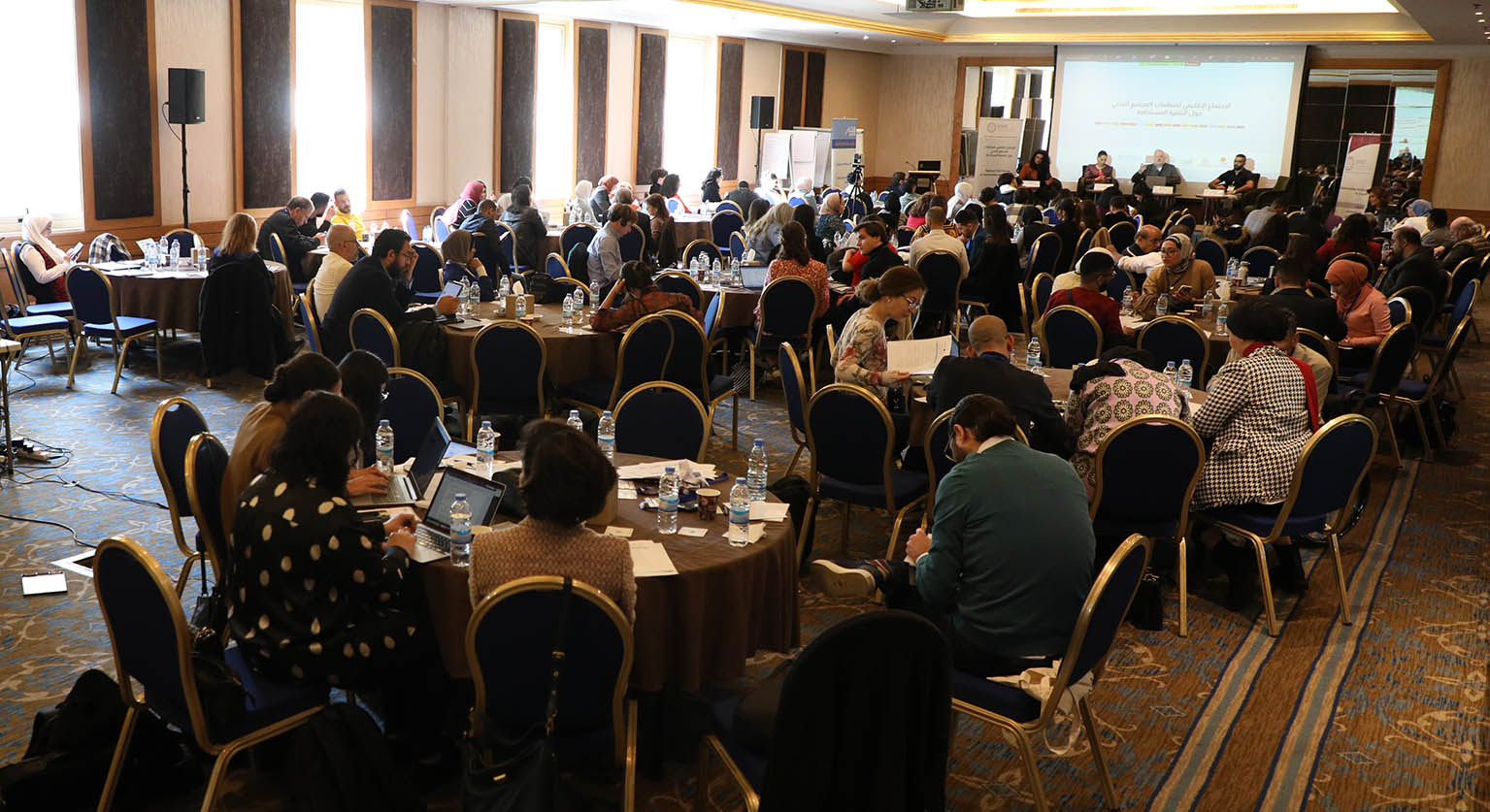
The Regional Civil Society Forum on Sustainable Development in the Arab Region and SAFIR Youth Forum outcomes
The Regional Civil Society Forum on Sustainable Development in the Arab Region and SAFIR Youth Forum Outcomes - March 2023
Please click here to download the full report
Background
At the midpoint in its implementation, it is evident that the 2030 Agenda and its 17 Sustainable Development Goals (SDGs), as a universal commitment to achieve a sustainable, prosperous, and peaceful world for everyone, has been challenged with systemic and structural challenges at political, economic, social and environmental even at security levels.
Last year during the 2022 High Level Political Forum Ministerial Declaration , the world leaders noted this challenge stating that the world’s economic recovery has proven uneven and global growth is facing significant risks. They acknowledged that “inflation, slowing economic growth, poverty, inequality, unsustainable consumption and production patterns and the ongoing disruptions in global value and supply chains, the increase in food and commodity prices and the serious rise in global food insecurity further endanger development prospects and contribute to a further divergence in recovery, particularly in the most vulnerable countries already suffering from high levels of poverty, food insecurity and malnutrition”. This uneven recovery is crystal clear given that since 2020, the richest 1% have captured almost two-thirds of all new wealth – nearly twice as much money as the bottom 99% of the world’s population.
This exacerbated situation was also acknowledged by UNDP according to which the Human Development Index, which measures a nation’s health, education, and standard of living, has declined globally for two years in a row. In other words, human development has fallen back to its 2016 levels and 9 out of 10 countries' progress fall backwards in human development.
The sustainable development challenges are not different in most of the countries of the Arab region. They signal the urgent need for a new social contract addressing the nature of the state promoting human rights, secularism, transparency and separation of powers. highlighting economic and social justice and rights in such a contract is a priority. Decades-long rentier policies in neo-patrimonial states, the lack of productive economies together with the lack of just distribution and redistribution, and the lack of inclusive social policies and embedded corruption intensify inequalities at national and intra-regional levels.
On the other hand, the lack of national, transparent, multi stakeholder dialogue processes and structured mechanisms exclude vulnerable groups from political, social, cultural, and economic processes, in addition, the absence of clear courses to combat corruption and enhance transparency bring together violence and unrest. The quest for sustainable peace in the region is further challenged as not only do we lack political will but it is evident that arms-trade and enhanced role for private sector without accountability mechanisms are preferred by the international and regional actors for the sake of people's increasing humanitarian needs and dependence on humanitarian assistance.
During the two-day Regional Civil Society Forum on Sustainable Development organized on 12-13 March 2023 seven panel discussions, each elaborating on a certain thematic focus of Agenda 2030 and its 5Ps (People, Prosperity, Peace, Planet, and Partnerships) and cultural dimension were held and around 150 participants engaged in working group sessions and developed set of recommendations around the priorities discussed including on the regional context, process, and engagement on Agenda 2030 monitoring, peace and development nexus, social cohesion, structural economic problems, Agenda 2030 implementation and Ffd, diversified economies, industrialization and employment, and finally climate finance.
Please click here to download the full report
Recent publications

